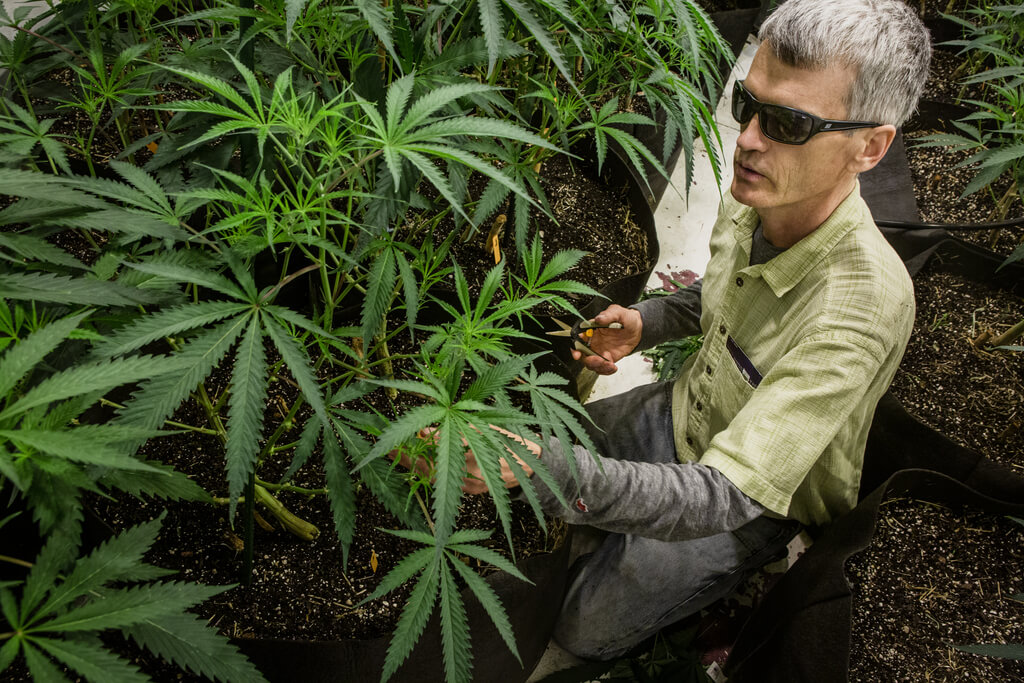Chris Grigsby, director of MOFGA Certification Services LLC, said that the Certified Clean Cannabis program mirrors the national organic certification program available to other growers.
John Black, CEO of Earth Keeper LLC in Wilton, was one of the original caregivers who approached MOFGA to encourage them to develop the certification program in 2015.
“There are a lot of sick people that cannabis helps, and to infect them with high metal concentrations, pesticides and fungicides is not being responsible,” Black said.
The Clean Cannabis Certified program requires that the inputs for growing cannabis be approved for organic use, and applicants agree to regular on-site inspections and rigorous record-keeping.
“There’s a lot of hydroponic organic production out there, but it’s never certified by MOFGA because organic agriculture is built around the belief that you feed the soil, not the plant,” Grigsby said.
Certified producers like Sweet Dirt have observed positive changes in their plants.
Nick Tremblay, owner and founder of Nick’s Trees in Eastport, became a MOFGA Certified Clean Cannabis operation in 2018.
In San Francisco, that’s where I did come in contact with cultivators growing spraying all kinds of awful pesticides, then they would sell it, and people are smoking that.
“You have to have all of your receipts for inputs that you’re using for soil,” said Tom Falby, owner of Casco Bay Cannabis Company in Scarborough, who received their Clean Cannabis certification in 2017.
“It does typically often become advantageous from a cost standpoint,” Murray said.
For example, recreational adult-use cannabis has mandatory testing written into the law, whereas medical cannabis does not.
“It was federally illegal for so long, so they want to make it challenging for people to be in the market,” Pope said.
“If you go to the farmers market, you may pay a little bit of a price premium market so far.
